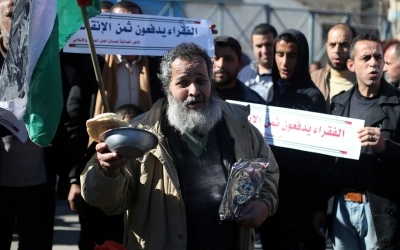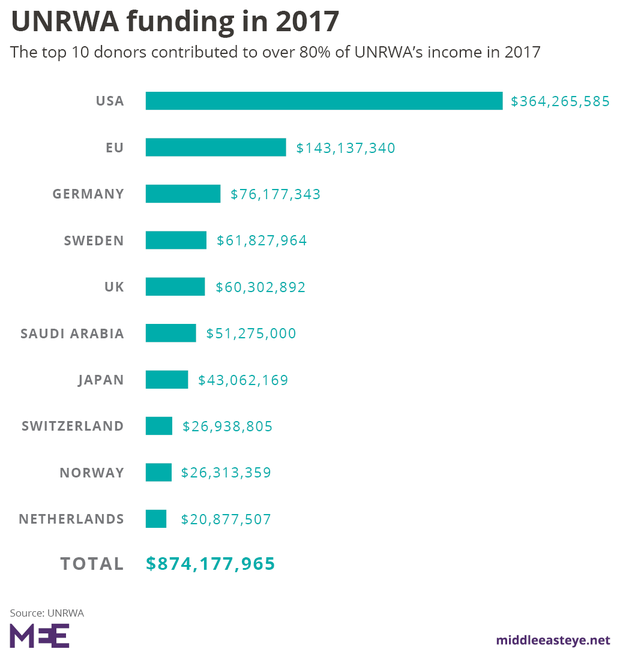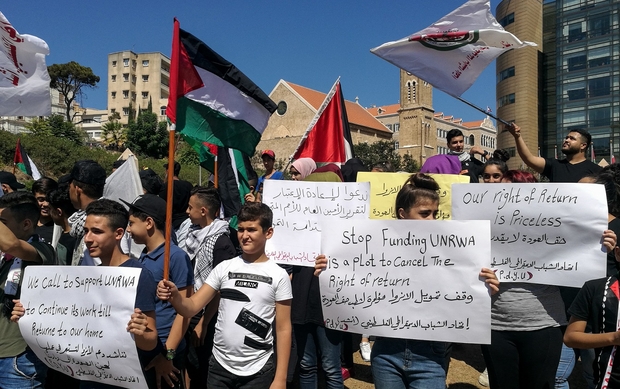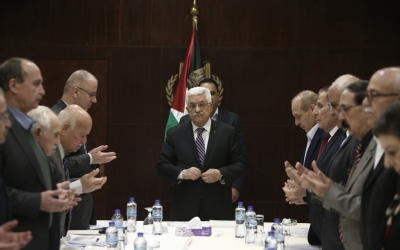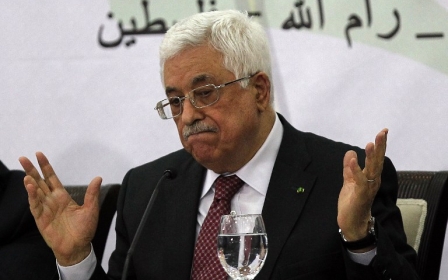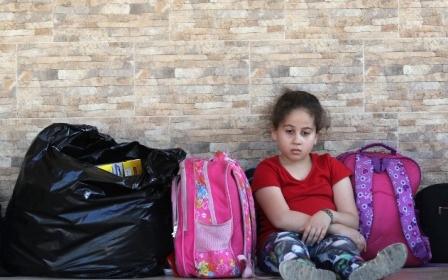Why cutting US aid will help Palestinians - and peace
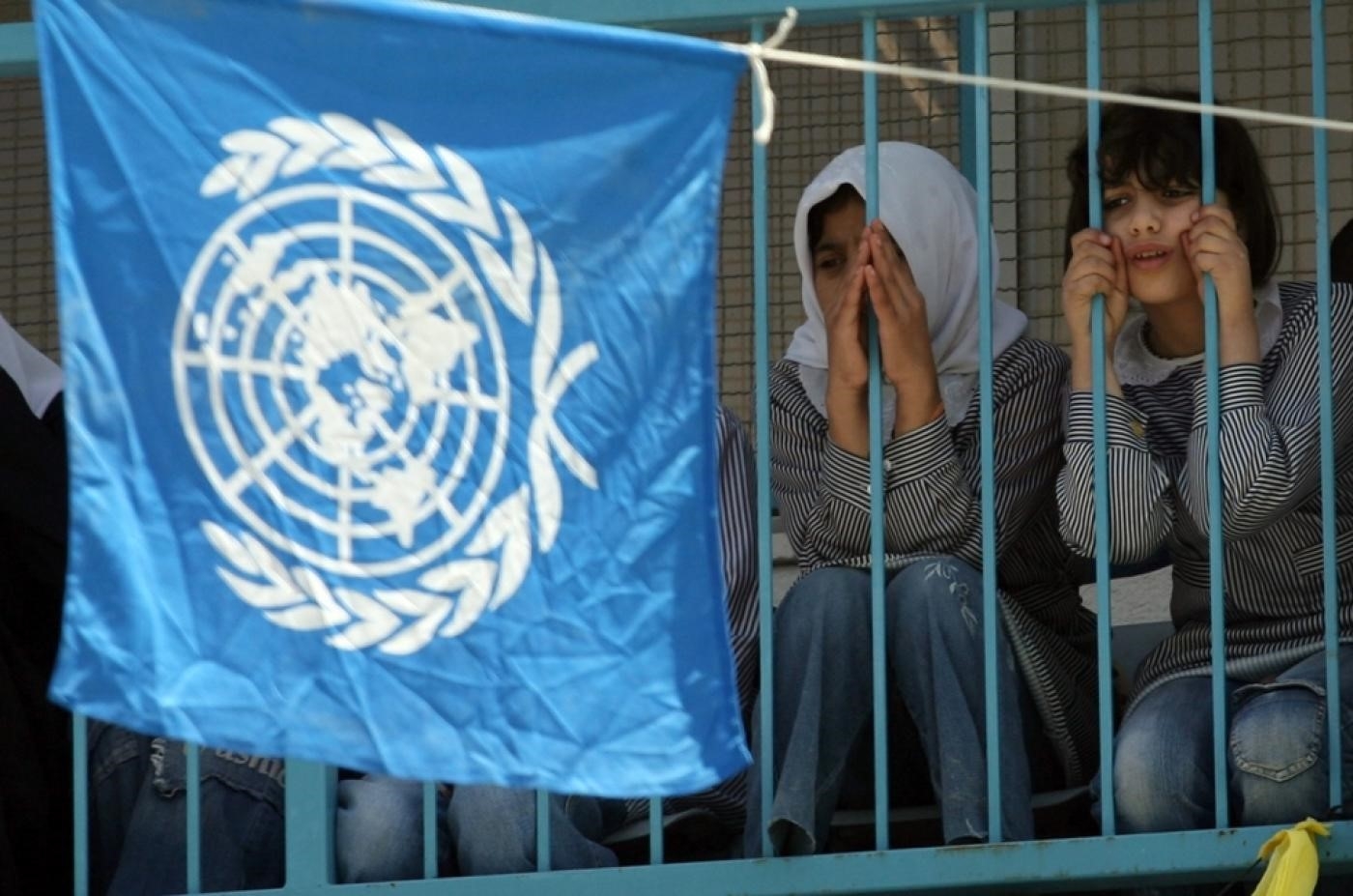
As of 1 February, USAID has officially ceased operations in the occupied Palestinian territories. This has been tied to the Anti-Terrorism Clarification Act (ATCA) passed in Congress in October. The law stipulates that foreign governments that accept aid from the United States government can face prosecution in US courts for damages resulting from terrorism.
The move led the Palestinian Authority (PA) to declare its refusal to receive additional US aid, and therefore put an end to the USAID presence in the occupied territories, at least for now.
Harmful cuts
ATCA, which does not only concern aid to Palestinians, was just the latest in a series of punitive measures taken by the US government against the Palestinians. The most damaging of these were a series of harmful cuts in 2018 that took away hundreds of millions of dollars in funding for essential services and humanitarian needs for Palestinians, such as for healthcare and support for refugees.
By contrast, the final shuttering of USAID puts an end to US funding for programmes that are themselves harmful to the Palestinians, like the $60m for PA security forces.
That funding was predicated on PA forces coordinating security control over Palestinians with Israel. It is a key investment the US has made into the PA - particularly since the Second Intifada ended in 2005 - training and funding PA security forces.
The final shuttering of USAID puts an end to US funding for programmes that are themselves harmful to the Palestinians – $60m for PA security forces
Those forces are under increasing scrutiny for human rights abuses, such as routinely arresting and torturing peaceful critics. Meanwhile, PA forces are not allowed to respond to incidents of violence against Palestinians by Israeli settlers, even though these are the greatest threat to the rule of law and security for West Bank Palestinians.
So, that final $60m in funding was reinforcing Israeli rule, while making Palestinian lives more insecure, and reinforcing a PA slide away from democracy into autocracy.
Happy Palestinians?
When the Oslo Accord was signed in 1993, there was widespread optimism that Israelis and Palestinians would find peace together. To support the process, international donors – under US leadership – pledged substantial funding for Palestinian development aid projects to build the institutions of a Palestinian state.
This was done on an assumption that aid could, when combined with those institutions, catalyse Palestinian economic growth and provide Palestinians with a "peace dividend", encouraging them to build peace with Israel.
The antecedents to this model lay in US policy that dates back at least to the 1970s, when the Carter administration undertook a depoliticised approach premised on the idea that "happy" Palestinians, who had steady employment and a functioning administrative structure, would be willing to negotiate for a settlement under occupation.
In the 1980s, the Reagan administration attempted to find a peaceful solution by promoting economic issues instead of a political settlement. Proposed as a "Quality of Life" initiative, the US attempted to promote political reconciliation between Israel and the Palestinians through economic inducements that were theoretically separated from politics.
More recently, the George W Bush and Obama administrations worked with - and funded - the development of PA security services, under a Western-backed Abbas presidency, to exert control over the major Palestinian population centres in the West Bank.
Officially the hope was that after a violent Second Intifada, if and when Israel felt secure, it would be willing to take steps to lift restrictions on Palestinians to reignite the Oslo Process.
The biggest donor
From the outset of the Oslo process in 1993, the US has been the single biggest country donor of Palestinian aid and only second behind the European Union overall. Altogether, donors have disbursed over $35bn in Palestinian aid since 1993. According to OECD data, the US alone spent nearly $7.3bn on Palestinian aid from 1993 to 2017.
According to the Palestinian ministry of finance, the US was the PA’s fourth biggest donor from 2012 to May 2016, at nearly $450m. Since 1950, the US has been the biggest donor for Palestinian refugees through UNRWA, spending more than $6bn. In 2017, the US provided around one-third of the budget of the agency serving 5.4 million refugees.
From the onset of the Oslo Peace Process in 1993, the US has been the single biggest country donor of Palestinian aid and only second behind the European Union
Meanwhile, the Palestinian economy has since 1967 been stunted by a process of de-development that has left it worth less in GDP value than 5 percent of the Israeli economy, despite similar population sizes. Thus, US assistance has at times been very significant as a percentage of Palestinian GDP, exceeding 10 percent in 2009. This often left the US as a key driver of Palestinian economic activity and funding for PA institutions.
A problematic assistance
The US assistance is, though, problematic by nature. It is not based on altruistic humanitarianism or neutral peace-building, but rather must be considered through the lens of the US’s close relationship to Israel.
The US is probably Israel’s closest ally, and is definitely its most important one. Since 1949 it has contributed at least $134bn (non-inflation adjusted) in official aid to Israel. The US has also provided Israel with diplomatic cover, blocking key UN resolutions against the occupation and Israel’s treatment of the Palestinians according to international law.
This is highly problematic because it is accepted that a donor in a fragile and conflicted state needs to act as neutrally as possible, in order to not do harm by contributing to factors that can make conditions worse. As a donor, the US has done precisely the opposite.
Keeping Israel secured
As a result, rather than benefit from aid, the Palestinians have since 1993 become dependent on it. This has been caused by the oppressive restrictions placed by the Israeli military on every aspect of Palestinians’ lives, by their rapid loss of land to Israeli settlements, extended periods of violence and their not being allowed to trade freely with the outside world.
Meanwhile, aid has offered tangible benefits to the Israeli government. Aid has relieved it of the costs of occupation, because donors have been willing to pay for Palestinian services, while simultaneously allowing Israel to exploit a Palestinian economy often kept solvent by aid.
Further, outside assistance has provided Israel with a subcontractor (the PA) to act as a proxy to maintain control over the West Bank, saving Israel a fortune in dollars and lives. For this reason, the Israeli security establishment has shown appreciation and even lobbied for Palestinian aid.
However, attitudes in the government of Israel have been changing alongside new class and race dynamics. An Israeli security sector long dominated by the "old" Ashkenazi elite (Jewish people descended from Europe, in the Israeli context of the term) has been losing power in recent years to more right-wing movements, often led by politicians of Mizrahi origin (Jewish people descended from the Middle East).
Those Mizrahi politicians have often pushed to intensify conflict with the Palestinians and do away with the Oslo process completely. The Netanyahu government has benefited from the rise of those political forces, and from its ideological partner the Trump administration, which is willing to weaponise aid to force worse political resolutions on the Palestinians.
The Netanyahu and Trump governments have been willing to take away life-enabling programmes as a punishment against the Palestinians, while funding security to maintain control over them. This is being done in anticipation of a US "Deal of the Century" that should fulfil a number of Israeli aims, like denying Palestinian refugees the right of return enshrined under international law.
An unexpected way forward
There is much wrong with US assistance for the Palestinians. That is without even exploring how USAID is spent, such as giving tens of millions of dollars in grants to private US contractors with terrible track records of mismanagement, failure and scandal.
There is also no doubt that the aid cuts in 2018 hurt. Innumerable Palestinians relied on that funding. It must also be accepted that, despite the politics of the US government, there were many Americans at USAID who sincerely attempted to make Palestinian lives better.
Still, once US assistance was reduced to security cooperation with Israel, crudely reinforcing a colonial occupation, the Palestinians definitively became better off without it. Meanwhile, refusing USAID reduces US influence, which may be a good thing given US biases and the catastrophic failure of peace-building under its leadership.
This might even lead to a new approach to peace-building and one that leaves Israel to bear the full burden of costs for ruling over the Palestinians.
In this way, the axing of USAID in Palestine could be seen as a step in a positive new direction towards peace-building based on human rights and international law, while finally leaving the long moribund Oslo model to rest. It also puts to rest a key element in a securitised US aid strategy that evolved over 25 years largely to pacify and maintain control over the Palestinians, under occupation, under the pretext of peace-building.
The challenge is for Palestinians to seize this opportunity to rethink their approach to international aid and ensure that the US will not pick up its operations in the future freely, without being accountable to the Palestinian people, and without committing to Palestinian conditions on aid delivery.
Until then Palestinians also need to ensure that the operations of the US Security Coordinator (USSC) are also shuttered, while all attempts to persevere with the intervention of the USSC must be firmly resisted. It is time to acknowledge that the shuttering of USAID will not only help Palestinians, but it will be also instrumental to build future meaningful peace.
The views expressed in this article belong to the author and do not necessarily reflect the editorial policy of Middle East Eye.
This article is available in French on Middle East Eye French edition.
Middle East Eye propose une couverture et une analyse indépendantes et incomparables du Moyen-Orient, de l’Afrique du Nord et d’autres régions du monde. Pour en savoir plus sur la reprise de ce contenu et les frais qui s’appliquent, veuillez remplir ce formulaire [en anglais]. Pour en savoir plus sur MEE, cliquez ici [en anglais].


